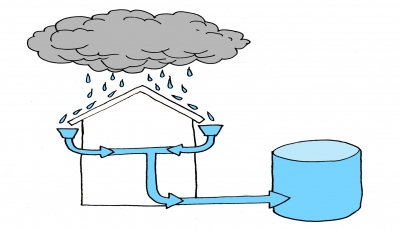Reclaim Waste Melbourne: Leading Solutions for Detailed Liquid Waste Removal
Reclaim Waste Melbourne: Leading Solutions for Detailed Liquid Waste Removal
Blog Article
Fostering Source Effectiveness and Environmental Management Through Liquid Waste Elimination Programs
In the realm of ecological stewardship, the management of fluid waste stands as an important juncture where source performance and ecological defense merge. Fluid waste elimination programs play a critical role in safeguarding our communities and ensuring lasting advancement methods. By carefully attending to the disposal of liquid waste, communities and sectors can not just minimize possible dangers yet likewise unlock possibilities for recycling and repurposing important sources. As we navigate the intricacies of waste monitoring in a rapidly developing world, the synergy in between innovative modern technologies, strict guidelines, and forward-thinking strategies ends up being increasingly vital. Through a lens of proactive interaction and tactical insight, the landscape of liquid waste monitoring introduces a tapestry of challenges and possibilities that bid us to discover the path towards a greener and more sustainable future.
Importance of Liquid Waste Elimination
The relevance of liquid waste removal depends on its important duty in maintaining ecological wellness and securing public health. Liquid waste, otherwise properly taken care of, can posture severe threats to ecological communities, water resources, and human health. Through efficient elimination procedures, dangerous substances such as chemicals, pathogens, and pollutants are avoided from infecting the atmosphere and triggering destructive results.
Proper liquid waste elimination additionally assists in stopping the spread of conditions and minimizing the capacity for groundwater contamination. By securely dealing with liquid waste, the risk of waterborne illnesses and pollution-related health issues is significantly minimized - Reclaim Waste liquid waste removal. In addition, effective removal methods add to maintaining the overall tidiness and aesthetic appeals of areas, therefore improving the lifestyle for citizens
Additionally, liquid waste elimination plays a vital duty in supporting lasting growth and guaranteeing compliance with ecological laws. By sticking to correct waste monitoring organizations, sectors and protocols can reduce their environmental impact and show business responsibility. Inevitably, buying robust liquid waste elimination programs is vital for promoting ecological stewardship and promoting a much healthier, much safer future for all.

Advantages of Effective Disposal
Effective disposal of liquid waste not just safeguards environmental health and wellness and public wellness yet additionally produces numerous benefits that extend past immediate containment steps. Through processes like reusing and energy recuperation, beneficial resources can be removed from fluid waste, promoting sustainability and reducing the stress on raw products. Generally, the benefits of reliable fluid waste disposal are complex, incorporating environmental protection, resource efficiency, and financial benefits.
Technologies for Waste Therapy
Utilizing innovative innovations for waste treatment plays a vital role in ensuring the effective management and safe disposal of fluid waste. One of the essential technologies utilized in liquid waste treatment is organic treatment.
Advanced oxidation processes (AOPs) have actually gotten appeal for their site here capacity to degrade persistent natural contaminants in fluid waste through the generation of very reactive hydroxyl radicals. Membrane innovations like reverse osmosis and ultrafiltration work for dividing contaminants from liquid waste streams. Additionally, thermal treatment techniques such as incineration can be employed for the complete destruction of hazardous parts in liquid waste. Generally, the combination of diverse treatment technologies guarantees ecologically friendly and thorough administration of fluid waste.
Role of Laws and Conformity
In the world of fluid waste monitoring, adherence to governing structures and conformity requirements is critical for protecting ecological wellness and sustainability. Regulations play a vital function in governing the proper handling, treatment, and disposal of fluid waste to avoid injury to communities and human health. By establishing clear guidelines and standards, regulatory bodies make sure that businesses and people involved in liquid waste administration run in an ecologically accountable manner.
Conformity with these guidelines is not just a legal demand however also an honest commitment to safeguard the environment for future and existing generations. It includes implementing ideal methods in waste collection, transportation, disposal, and treatment to minimize ecological effect and advertise resource performance. Non-compliance can cause penalties, legal action, and reputational damage for companies, highlighting the relevance of maintaining regulative requirements.

Future Trends in Waste Monitoring

Another essential trend in waste administration is the fostering of sophisticated data analytics and expert system to maximize waste collection courses, improve sorting processes, and enhance total functional performance. These innovations enable waste management business to make data-driven choices, leading to cost savings and ecological advantages.
In addition, there is a growing focus on the advancement of decentralized waste administration systems, such as onsite treatment facilities and mobile waste processing devices. These systems use adaptability and his explanation scalability, permitting much more efficient waste handling in varied settings.
Final Thought
To conclude, promoting resource performance and environmental security via liquid waste removal programs is critical for sustainable development. Efficient disposal approaches, progressed modern technologies for waste therapy, and strict regulations play vital roles in decreasing ecological influence. Looking in advance, continuous development and improvement in waste management practices will be important for resolving the expanding obstacles of liquid garbage disposal.
In the realm of environmental stewardship, the administration of fluid waste stands this link as an essential time where source performance and environmental protection converge (Reclaim Waste liquid waste removal).Making use of advanced technologies for waste therapy plays a critical duty in making certain the reliable administration and safe disposal of fluid waste.In the world of fluid waste management, adherence to governing frameworks and conformity standards is vital for protecting ecological health and sustainability.In conclusion, promoting source performance and environmental security with liquid waste removal programs is vital for lasting development. Looking ahead, constant development and improvement in waste administration methods will be necessary for attending to the expanding obstacles of liquid waste disposal
Report this page